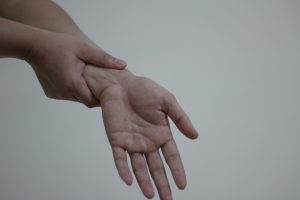Millions of Americans are currently suffering from carpal tunnel syndrome (CTS), and many of these people have never even gone to get an official diagnosis and have never mentioned anything to their respective employers. Instead, they choose to suffer on their own and will even go so far as to try home remedies or get braces and other types of supportive wraps from a local drug store and continue to suffer at work each day.
 However, the pain from carpal tunnel syndrome does not go away at night for many patients. In fact, the pain can get worse throughout the day and keep patients up at night, and this will make the next day at work even worse than the previous one. Before we discuss what you should do if you have carpal tunnel syndrome, the first thing to do is to take a look at the symptoms and causes of CTS.A recent news report from Philly.com takes a look at the causes of numbness and weakness in the hand and what it means to have carpal tunnel syndrome. The carpal tunnel is a tunnel in the hand and wrist that contains a sheath protecting a bundle of nerves that controls the movement of the fingers and tendons in the palm. When a worker engages in repetitive tasks, this can result in what is known as repetitive stress injury or “RSI,” as it is often called. One type of RSI is carpal tunnel syndrome. This occurs when the carpal tunnel is compressed to where it interferes with the nerves. This results in significant pain and suffering and will make the hand weak and tired. Eventually, it may be very difficult for the victim to use his or her hand, and the pain may radiate up and down the entire arm and into the neck and head.
However, the pain from carpal tunnel syndrome does not go away at night for many patients. In fact, the pain can get worse throughout the day and keep patients up at night, and this will make the next day at work even worse than the previous one. Before we discuss what you should do if you have carpal tunnel syndrome, the first thing to do is to take a look at the symptoms and causes of CTS.A recent news report from Philly.com takes a look at the causes of numbness and weakness in the hand and what it means to have carpal tunnel syndrome. The carpal tunnel is a tunnel in the hand and wrist that contains a sheath protecting a bundle of nerves that controls the movement of the fingers and tendons in the palm. When a worker engages in repetitive tasks, this can result in what is known as repetitive stress injury or “RSI,” as it is often called. One type of RSI is carpal tunnel syndrome. This occurs when the carpal tunnel is compressed to where it interferes with the nerves. This results in significant pain and suffering and will make the hand weak and tired. Eventually, it may be very difficult for the victim to use his or her hand, and the pain may radiate up and down the entire arm and into the neck and head.
While many people think they have to live with this at work each day, this is actually a valid basis for filing a workers’ compensation claim. However, it essential that you speak with an experienced Boston workers’ compensation attorney as soon as possible, so you file a claim as soon as possible, or, at the very least, put your employer on timely notice of the on-the-job injury.
Another important thing to keep in mind is that, while many think that you get carpal tunnel syndrome from sitting at desk and typing all day, there are a lot of other types of jobs that are more likely to lead to carpal tunnel syndrome. For example, factory jobs and food processing jobs are two of the more common ways to get carpal tunnel syndrome. While you might not think of it so quickly, a job like shucking claims or oysters requires using a lot of hand strength to perform the same tasks over and again for hours of time day after day. Activities like this are much more likely to lead to carpal tunnel syndrome and other repetitive stress injuries than a job that requires you to sit at desk and enter data all day.
If you or someone you love has been injured a Boston work accident, call for a free and confidential appointment at (617) 777-7777.
Additional Resources:
What’s causing numbness, weakness in my hand?, September 14, 2016, By Marc Legere, D.C., Philly.com
More Blog Entries:
Parr v. Breeden – Supervisor Co-Workers Not Liable Under Workers’ Comp Exclusive Remedy, July 3, 2016, Boston Work Accident Lawyer Blog
 Massachusetts Workers Compensation Lawyers Blog
Massachusetts Workers Compensation Lawyers Blog

